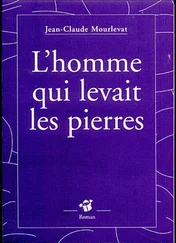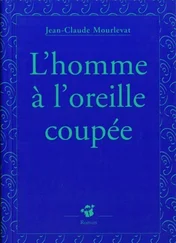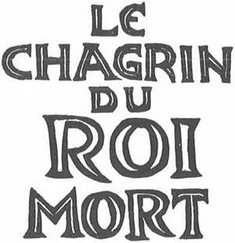Jean-Claude Mourlevat - Winter's End
Здесь есть возможность читать онлайн «Jean-Claude Mourlevat - Winter's End» весь текст электронной книги совершенно бесплатно (целиком полную версию без сокращений). В некоторых случаях можно слушать аудио, скачать через торрент в формате fb2 и присутствует краткое содержание. Год выпуска: 2010, ISBN: 2010, Издательство: Candlewick, Жанр: Старинная литература, на английском языке. Описание произведения, (предисловие) а так же отзывы посетителей доступны на портале библиотеки ЛибКат.
- Название:Winter's End
- Автор:
- Издательство:Candlewick
- Жанр:
- Год:2010
- ISBN:9780763651749
- Рейтинг книги:5 / 5. Голосов: 1
-
Избранное:Добавить в избранное
- Отзывы:
-
Ваша оценка:
- 100
- 1
- 2
- 3
- 4
- 5
Winter's End: краткое содержание, описание и аннотация
Предлагаем к чтению аннотацию, описание, краткое содержание или предисловие (зависит от того, что написал сам автор книги «Winter's End»). Если вы не нашли необходимую информацию о книге — напишите в комментариях, мы постараемся отыскать её.
Winter's End — читать онлайн бесплатно полную книгу (весь текст) целиком
Ниже представлен текст книги, разбитый по страницам. Система сохранения места последней прочитанной страницы, позволяет с удобством читать онлайн бесплатно книгу «Winter's End», без необходимости каждый раз заново искать на чём Вы остановились. Поставьте закладку, и сможете в любой момент перейти на страницу, на которой закончили чтение.
Интервал:
Закладка:
But the Skeleton was in such a state that she didn’t notice. “Yes, you can go.”
The dormitory, a vast room with fifty or so bunk beds and gray metal lockers, was above the refectory. In the faint glow of the night-lights Helen passed through the first part, where the youngest girls slept, amid whispers and the rustling of sheets. There was still a light on in Miss Zesch’s cubicle in the corner, casting vague shadows on the ceiling. When Helen reached her bed, near the windows, she sat down on the edge of it to take her shoes off. For the first time in more than three years, Milena’s bed, the one above hers, would be empty. She undressed, put on her nightgown, and disappeared under the covers, head and all. Less than ten seconds later, she heard Vera Plasil, in the next bed, whispering.
“Where’s Milena?”
Helen timidly emerged. “She hasn’t come back.”
“Will she be coming?”
“I don’t think so.”
Vera groaned. “Oh, no! I don’t believe it! So who was picked for punishment?”
“Catharina Pancek.”
“Oh, my God!”
The dormitory where the fifth-year and sixth-year girls slept was on the other side of a partition. One of the other supervisors suddenly burst through the door and marched straight toward Miss Zesch’s cubicle. Helen quickly recognized Miss Merlute, a tall, round-shouldered woman whose huge nose looked like a false one. People said she was the Tank’s lapdog, ready to do anything for her, obeying her orders without a moment’s hesitation. There was a low-voiced conversation, then both supervisors came out of the cubicle and made straight for the part of the dormitory where the fourth-year girls slept.
“PANCEK!” thundered Miss Zesch. “CATHARINA PANCEK!”
The girls started and sat up in bed.
“Catharina Pancek, get up, get dressed, and come with me!” ordered Miss Merlute.
“And the rest of you lie down again and stop talking!” shouted Miss Zesch.
In the next row, little Catharina sat up, unable to believe it. But a glance at Milena’s bed, impeccably made and empty, immediately told her what was in store for her. She looked at Helen, but Helen turned her head away.
“Hurry up!” said Miss Merlute impatiently.
Catharina put on her glasses, which she kept hooked over the metal bedhead, opened her locker, dressed, put on her shoes, and went out with her coat under her arm. As she passed close — the supervisors were waiting farther off — Helen called in a low voice, “Catharina!”
“What is it?”
“Milena asks you to forgive her.”
“What?”
“Milena asks you to forgive her,” repeated Helen, and her voice broke.
Catharina didn’t answer. She made her way past the rows of beds, while a chorus of voices rose as she went by.
“Good luck, Catharina! You can do it, Catharina! We’ll be thinking of you.”
One girl ran over to her and kissed her cheek. Helen thought she saw her slip something into Catharina’s hand.
Miss Merlute, impatient, seized the girl by the arm and led her away almost at a run. They both disappeared through the doorway.
“Bitches!” said one girl savagely.
“Bloody cows!” agreed another.
“Stop talking, I said!” shouted Miss Zesch, and the voices died down.
Once peace and quiet were restored, Helen hid under her sheet and blankets and curled up into a ball. In the darkness she tried to persuade herself that this was only a nightmare and best forgotten, and she did her best to distract her mind by thinking up male and female couples, like Octavo: husband and wife; wizard and witch; fox and vixen; boy and girl. And she trembled as she whispered, very quietly, “Milos and Helen.”

The next day was Friday, the day the Skunk came. Helen would have to get a move on if she was going to write her letter to Milos and leave it in the laundry cart before the old man arrived. She took advantage of Miss Mersch’s math lesson, which was from nine to ten. The math teacher was confined to a wheelchair and wouldn’t rush at her to snatch away her half-written letter shouting, “And what, young lady, is this?” She might have an eagle eye, but Helen, like the rest of her friends, was good at covering up.
For a moment she wondered how to begin. Dear Milos? They hardly knew each other. . . . Hi, Milos? You might say that to anyone. She decided on just Milos. He could take it any way he liked. She told him how she had found the library empty, about her return to the boarding school without Milena, and above all about how miserable she felt when she saw little Catharina Pancek taken away to the detention cell. She wrote about Milena’s amazing voice, saying she’d never have thought her capable of letting anyone down like that. And she asked him to reply soon, adding that she’d be waiting impatiently for his letter. Then she cobbled together a makeshift envelope out of another piece of notepaper folded in half and glued together. She took the piece of paper that Milos had given her the day before out of her sock, where she had tucked it away, and carefully copied his name: Milos Ferenzy. The boys’ boarding school. Fourth year. Before slipping her letter into the envelope, she paused for a moment to think, and added, under her signature: By the way, I haven’t even told you anything about myself. I’m seventeen. I like books and chocolate (and I’m glad I met you).
Writing that last line, she felt doubtful and uncertain. Had she said too much? Not enough?
At ten o’clock break, she unobtrusively joined a group of fifth-year girls in one corner of the school yard and asked straight out, “How does the mail service work? Does someone put the letters in the laundry cart and then the Skunk takes them away?”
A tall, slim, and rather pretty girl stared hard at her. “Who do you want to send a letter to?”
“A boy from over there.”
“What year are you in?”
“The fourth year.”
“What’s your name?”
“Helen Dormann.”
“And what’s his?”
“Milos Ferenzy,” said Helen. She blushed, and felt furious with herself.
The older girls conferred by exchanging glances. None of them knew Milos. He’d probably be too young to interest them.
“Give it here,” said the tall girl, and the others spontaneously formed a little barrier around them so that Helen could hand her letter over unnoticed.
“You’re the one who leaves the letters?” Helen asked.
“That’s right.”
“I . . . I don’t have a present for you. Or for the Skunk. I don’t have anything. I didn’t have the time to . . .”
“That’s all right. I’ll bring you the reply. If there is one.”
A little before midday, Helen was looking out the music-room window, which had a view of the yard, and saw the Skunk arrive with his jolting cart. He disappeared into the laundry and came out with a pile of white sheets. The day’s letters must be hidden among them.
I sent a letter to my love
And on the way I dropped it.
One of you has picked it up
And put it in your pocket.
Helen hummed, amazed to find how easily the nursery rhyme came back to her from her early childhood.
The days that followed were unbearable. Helen expected to be called to the Tank’s office at any moment. But the summons never came. The lack of reaction to what had happened was worse than anything. It meant that the school staff were sticking to Rule 16: If any pupil does not return after her three hours’ absence, another girl will be sent to the detention cell immediately and will stay there until the runaway is back. Everything was in order; the matter was closed.
Читать дальшеИнтервал:
Закладка:
Похожие книги на «Winter's End»
Представляем Вашему вниманию похожие книги на «Winter's End» списком для выбора. Мы отобрали схожую по названию и смыслу литературу в надежде предоставить читателям больше вариантов отыскать новые, интересные, ещё непрочитанные произведения.
Обсуждение, отзывы о книге «Winter's End» и просто собственные мнения читателей. Оставьте ваши комментарии, напишите, что Вы думаете о произведении, его смысле или главных героях. Укажите что конкретно понравилось, а что нет, и почему Вы так считаете.












